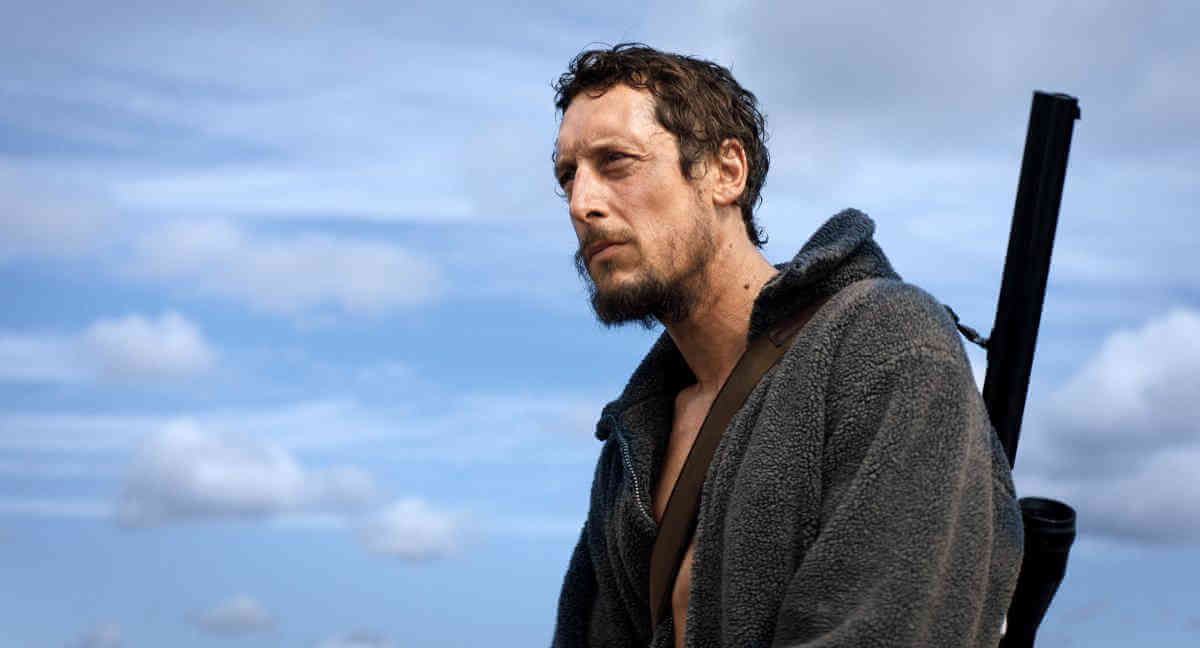“It’s easier to imagine the end of the world than the end of capitalism.”
Those thoughts, if not the exact same wording, have been attributed to influential philosophers like Fredric Jameson, Slavoj Zizek, and the late Mark Fisher. While calls for socialism have grown increasingly loud, the fascination that dystopias and apocalypses hold for filmmakers and writers has long been apparent. Just as the majority of period pieces are really about the times in which they were made, stories about the future are either about the world we’re experiencing now or our fears about what it could become.
But what if one finds hope in the idea of the end of the world? In the past few years, the apocalypse has been imagined as a way of opening up new possibilities from perspectives on the left (Ling Ma’s novel “Severance”) and right (John Krasinski’s “A Quiet Place”) alike. The ideology of German director Ulrich Köhler’s “In My Room” is harder to pin down, quite fitting for the author of an essay called “Why I Don’t Make Political Films.”
(Warning: spoilers ahead.)
The opening shots of “In My Room” feature a real-life German politician filmed with wildly disorienting handheld camerawork and random glitches. A roomful of people, including cameraman Armin (Hans Löw), turn out to be watching the video in editing software on a computer. Armin’s boss criticizes him for the poor quality of his work. We next see Armin go to a semi-rural house to help his father (Michael Wittenhorn) take care of his dying grandmother (Ruth Bickelhaupt), There, when his life isn’t stressful, it’s boring. But he gets drunk in his car and wakes up the next morning to find that everyone else has vanished. Motorcycles and buses lie abandoned in the road.
“In My Room” never explains what happened, but a secular rapture seems to have taken place. Armin rises to the challenge, turning himself from a sadboy to a country squire riding on horseback with a rifle. But after he injures his leg, he is lucky that Kirsi (Elena Radonicich), who seems to be the last women on the planet, shines her flashlight on him.
“In My Room” has a classic three-act structure but plays around with it. The middle third, in which Armin appears to be the only person left on Earth, has no dialogue. We can see Löw’s body changing along with his character: the scruffy beard Armin sports is probably fake, but Löw really lost weight and became far more muscular as the shoot went along. Armin lives in a landscape out of a J.G. Ballard novel, where he rides on horseback by an abandoned mall in the very early stages of becoming overgrown by trees. “In My Room” also evokes the TV show “The Leftovers,” but unlike it the film has no interest in spirituality except to echo Christian symbolism far out of context. Köhler himself cites literary influences rather than cinematic ones, especially the bleak, largely untranslated German novelist Arno Schmidt.
In his essay “Why I Don’t Make Political Films,” which was published in English by newfilmkritik.de, Köhler wrote, “The art that has played an important role in my life is characterized by its openness, its ambiguity, its amorality, and its refusal to be exploited and functionalized. If art is political, it is political exactly in this: It refuses to be exploited by the daily round of political and social concerns. Its strength lies in its autonomy.”
“In My Room” can be read as a wish fulfillment fantasy, but it’s too ambivalent to have a clear message. It describes a generation for whom marriage has lost its appeal. Armin has drifted through life, tied down only by his job and relatives. When Kirsi arrives on the scene, they cruise the relics of the recent past, like video stores, as if visitors to a museum, and dance to EDM.
The default logic of heteronormativity would dictate that they live happily ever after. If this were “A Quiet Place” they would settle down, but unlike Emily Blunt’s character in that film Kirsi explicitly says she doesn’t want to get pregnant in this world. As Köhler said in an interview in the film’s press kit, “If the last woman meets the last man, that doesn’t necessarily mean they have to become a couple.”
The situations described in “In My Room” push its characters’ normal lives to an extreme. Köhler’s gaze is nonjudgmental to a fault. “In My Room” winds up describing, if not celebrating, solitude. Critic Michael Sicinski has suggested that it makes a political gesture opposed to the growing respectability of restrictions on female freedom: “‘In My Room’ displays the most basic truth: humanity without freedom for all is no longer humanity.” But this film’s strength lies in its combination of slipperiness and allegorical riches. The freedom it finds in the apocalypse extends to the spectator.
IN MY ROOM | Directed by Ulrich Köhler | Grasshopper Film | In English and German with English subtitles | Oct. 11-20 | Museum of the Moving Image, 36-01 35th Ave. | movingimage.us




































